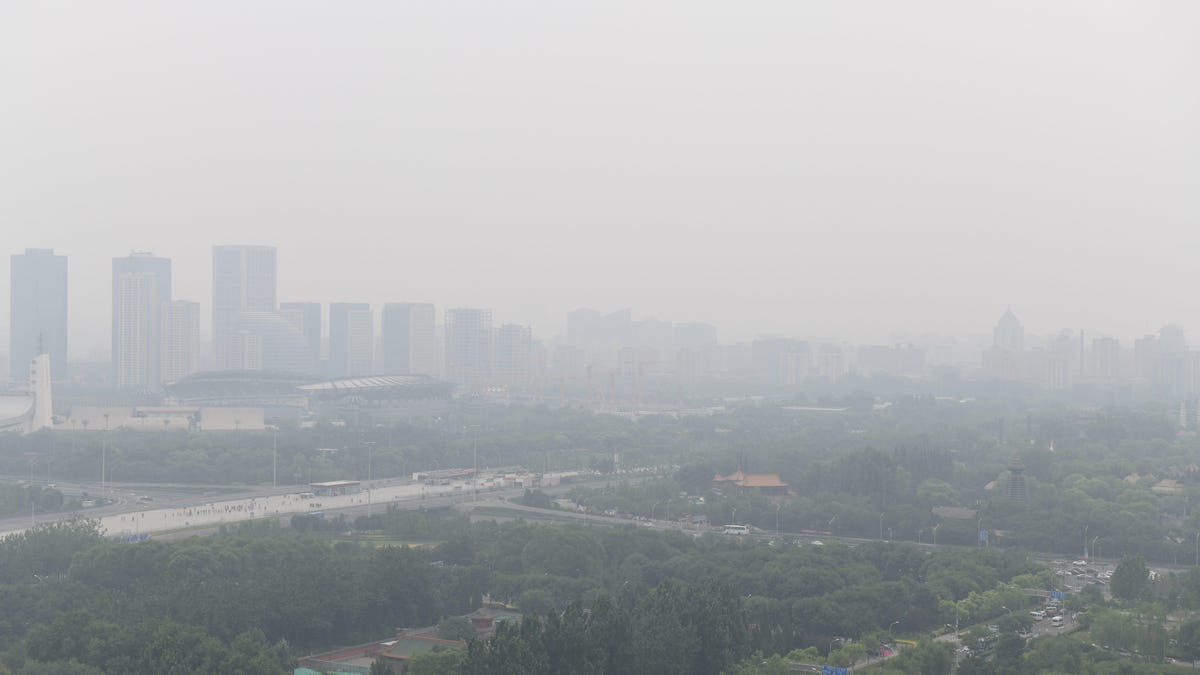China's pollution is so bad it's blocking the sunlight from solar panels
It sounds grim, but researchers say China can still turn it around.

China's air pollution is dimming the sun.
China touts renewable energy as its future, but new research shows that coal-driven air pollution is hurting the country's progress. Pollution has dimmed the sun to a point that it's affecting the output of solar panels there, a study has found.
The research, published Monday in the journal Nature Energy, mapped the impact of China's air pollution on potential solar output from about 1960 to 2015. Average solar generation declined by 11% to 15% during that time. Reverting back to the air quality from the 1960s could yield a 12% to 13% increase in electricity production and corresponding economic benefits -- $5 to $7 billion US dollars by 2030 -- according to the study.
Bart Sweerts, the study's lead researcher, said in an email to CNET that China has installed solar panels to produce more renewable energy and to help it reach the goals in the 2016 Paris climate agreement. Sweerts said the extent and consistency of the reduction in solar energy output since 1960 is striking, but he believes China can still overcome its problems.
"China is already achieving a lot in terms of air pollution control. The main drivers for this are the severe health effects of strong air pollution. However, China still has a long way to go -- and a lot to win," Sweerts said.
Originally published July 10.
Update, July 12: Adds comments from lead researcher Bart Sweerts.

